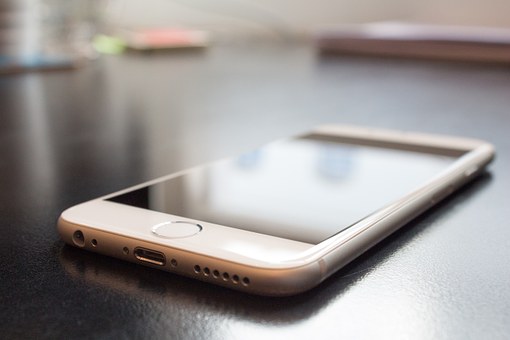FBI vs Apple iPhone

March 28, 2016
On December 2nd, 2015, in San Bernardino, California, 14 people were killed and 22 were injured in a domestic terrorist attack. The shooting was carried out by a married couple in their late twenties: Syed Rizwan Farook, and his wife, Tashfeen Malik. The couple attacked the employees of the San Bernardino County health department at a holiday party. A few hours later, the couple was killed in a shootout chase with the police.
In the aftermath of the attack, the FBI gathered evidence to understand what happened and prevent future attacks. They recovered pipe bombs, rounds of ammunition, and three cell phones. Two of the three cell phones were crushed and couldn’t provide information. The third phone was completely intact – but it was locked with a four-digit passcode. The iPhone was set up to erase itself after ten incorrect guesses. With ten possible values and four spaces, the FBI had 10,000 potentially correct passcodes.
The FBI decided to try to access a digital copy of the iPhone through its iCloud backups. To access the account, the FBI worked with the San Bernardino health department to reset Farook’s iCloud passcode. They were able to view several backups of the iPhone, with the latest made on October 19th, 2015 – nearly two months before Farook and his wife carried out the attacks. Unable to unlock the iPhone, the FBI turned to Apple for help. They learned that they had made a serious mistake in resetting the iCloud passcode. If they hadn’t reset it, they could have plugged Farook’s iPhone into his personal computer, which would have generated an new backup. The FBI asked Apple to give them Farook’s passcode. Apple didn’t have it.
The FBI requested Apple to build them a new operating system, known as GovtOS, that they could install onto Farook’s iPhone. The proposed operating system wouldn’t have a ten-guess limit. This would enable the FBI to try all 10,000 possible passcodes, and retrieve information from Farook’s iPhone. When Apple declined to comply with their request, the FBI used the All Writs Act, a law over two centuries old, to obtain a federal court order demanding that Apple create GovtOS.
This situation has proved to be very controversial. Those who support Apple’s decision argue that GovtOS compromises the security of Apple’s products. If Apple were to comply with the FBI, it would set a legal precedent – GovtOS would be demanded in future criminal cases involving locked iPhones. Thus, GovtOS would have to be stored somewhere. It would be a perfect tool for hacking all iPhones. Hackers would undoubtedly launch projects to find and steal GovtOS. Foreign governments could demand to use GovtOS. The bottom line: not writing GovtOS is the best way to protect the security of iPhone encryption.
Those who disagree with Apple’s decision argue that Apple is valuing the encryption of their product over the American justice system. Apple’s refusal to build GovtOS is preventing the FBI from completing their investigation. A complete investigation could provide the FBI with information to prevent future terrorist attacks. Apple’s refusal to comply with the FBI is seen as a refusal to protect the American people.
This is just one case involving encryption. With technology entering nearly every aspect of our lives, many more of these cases are sure to come. The world has changed too quickly for our legal system to keep up. In the following decades, technology companies will battle the government for freedom to encrypt. These disagreements are already known as the “Crypto War”. The fight between Apple and the FBI is far from over.


